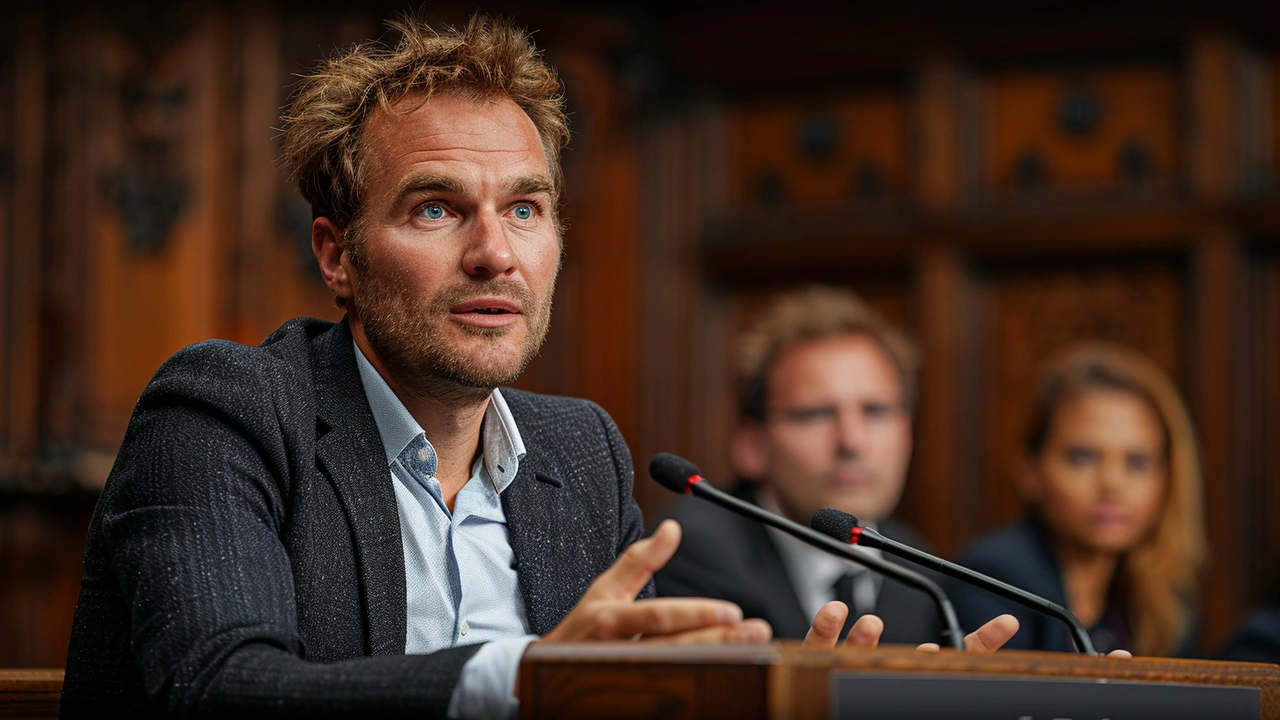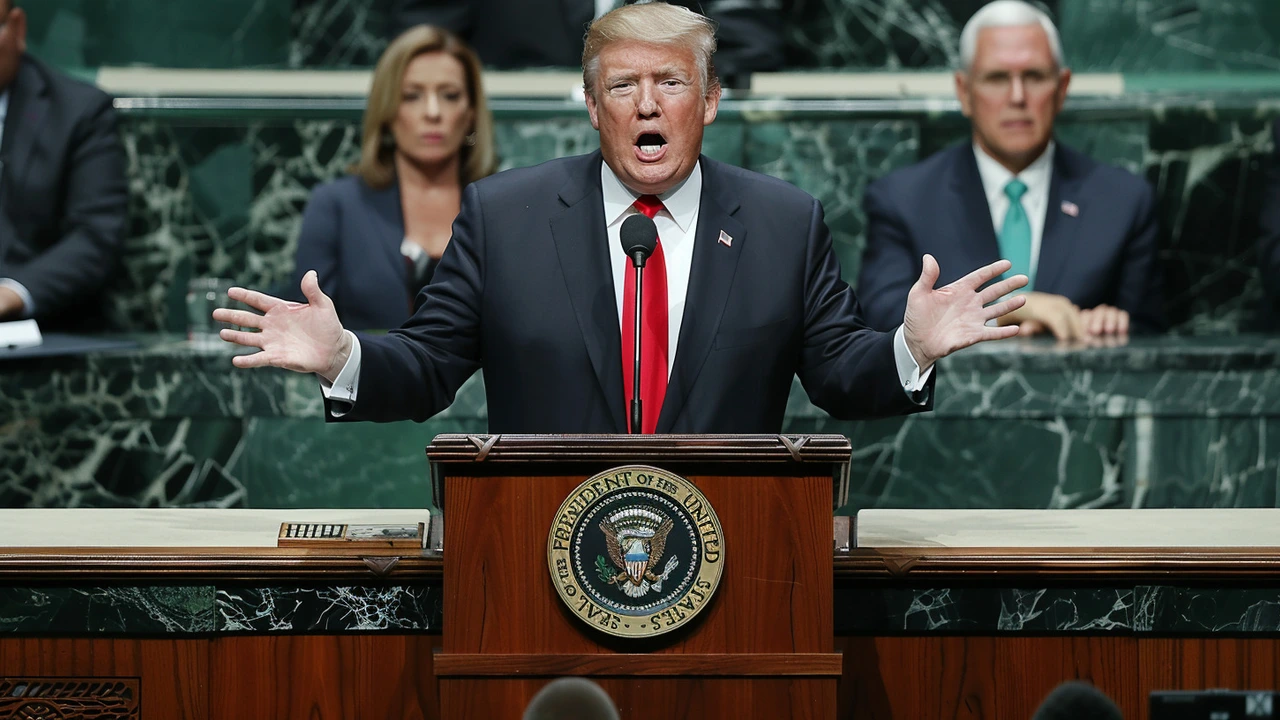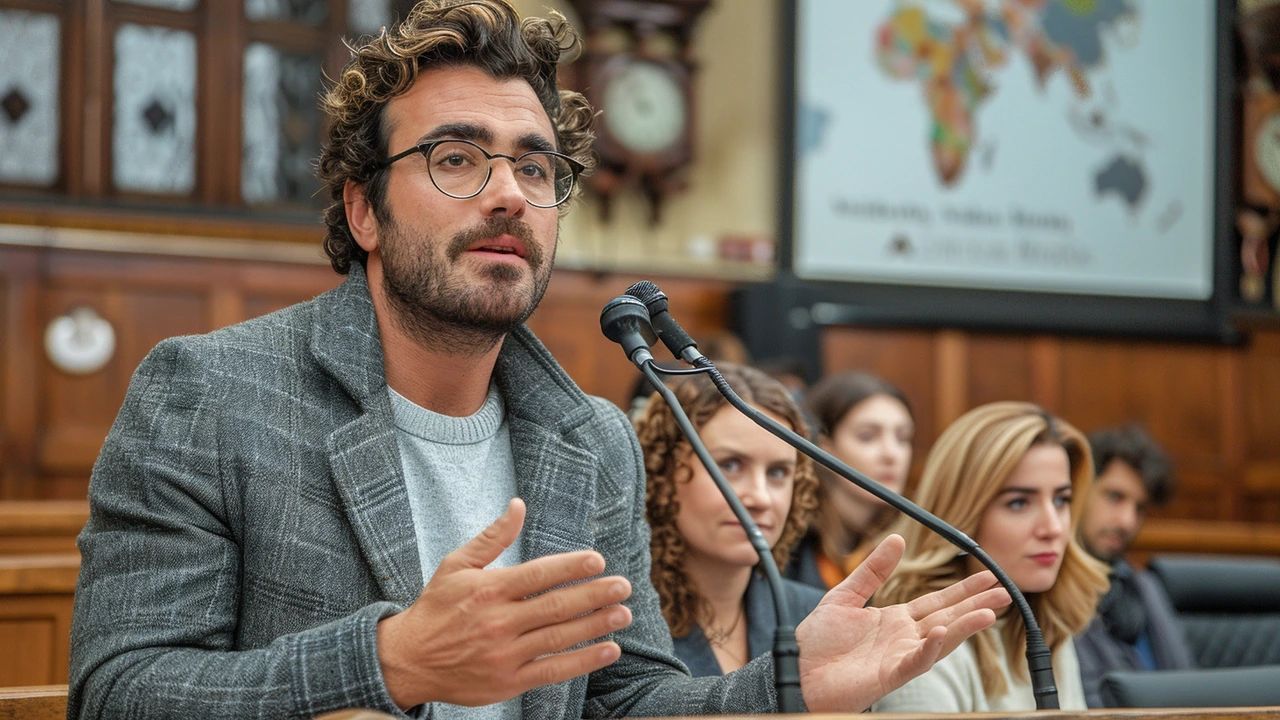Unmasking Media Bias: The Controversial Coverage of Paul Mashatile's Political Journey
 Jun, 12 2024
Jun, 12 2024
The Controversial Coverage of Paul Mashatile
No stranger to political turbulence, Paul Mashatile, a prominent figure in South Africa's ANC, has found himself at the center of a contentious media storm. News24, a widely recognized media outlet, has been accused of biased and malign portrayal of Mashatile, raising questions about the ethics and motives behind their reporting.
At the heart of this storm is Mashatile's firm endorsement of the Black-Broad-Based Economic Empowerment (BBEEE) policy, a framework designed to promote increased black ownership and control of the economy. This policy, while lauded by many as a necessary step towards economic equity, has stirred discomfort among sectors of the population benefiting from the status quo.
Allegations and Accusations
Critics of News24’s coverage argue that the media outlet has resorted to spreading false rumors and unsubstantiated claims to undermine Mashatile's political prospects. Masibongwe Sihlahla, a vocal critic, suggests that these actions are driven by an underlying opposition to the BBEEE policy, which threatens established economic interests aligned with the 'monied class' and the so-called 'deep state.'
These allegations raise significant questions about the role of media in shaping political discourse and public opinion. When journalism steps beyond the boundaries of objective reporting and veers into the realm of advocacy, it can profoundly impact democratic processes and societal stability.

The Influence of Economic Interests
Central to this dispute is the perception that certain media outlets align themselves with economic groups resistant to the socio-economic reforms advocated by Mashatile and the ANC. By actively campaigning against policies like BBEEE, these groups seek to perpetuate an economic regime that favors their interests, thus widening the socio-economic disparities that plague South Africa.
Sihlahla's assertion that News24's reporting aims to protect these entrenched interests highlights the intrinsic connection between media representation and economic power dynamics. If true, this poses a stark reminder of the potential pitfalls of media conglomerates wielding undue influence over public perception and policy direction.
The Importance of Ethical Reporting
In an era where information is instantaneously accessible and pervasive, the responsibility borne by media for accurate and ethical reporting cannot be overstated. Ethical journalism is foundational to democratic society. It fosters informed public discourse, ensures accountability, and mitigates the dangerous potential for misinformation to fuel divisiveness and conflict.
Misleading portrayals can jeopardize the very fabric of societal cohesion, as they may incite racial or political animosity. In the South African context, where historical tensions remain fresh in collective memory, the onus on media entities to uphold stringent ethical standards is even more pronounced.
The Broader Implications for the ANC
Mashatile's experience serves as a microcosm of the broader challenges faced by the ANC in its endeavor to steer South Africa towards a more equitable and inclusive economic landscape. The allegations against News24 underscore the formidable resistance from powerful economic players who have historically leveraged their influence to protect their interests.
This scenario highlights a pivotal struggle within South African society and politics: the clash between established economic power structures and the push for transformative policies that might redistribute economic control and spur substantive inclusive growth.
The Need for Balanced and Fair Reporting
As South Africa approaches critical junctures in its political journey, including coalition talks and potential elections, the role played by media cannot be understated. Ensuring that political reporting remains balanced, fair, and factual is essential for maintaining public trust and fostering a robust democratic process.
Mashatile’s narrative, framed within the context of media influence and political strategy, calls for a reassessment of how journalism is practiced in politically charged environments. The standards applied to reporting during such periods must be rigorous, and accountability mechanisms should be strengthened to safeguard the integrity of the press.

Concluding Thoughts
The debate surrounding Paul Mashatile and the media coverage he has received provides a critical lens through which to examine broader issues of media bias, economic interests, and political ethics. While the specifics of Mashatile's case are rooted in South Africa's unique context, the underlying themes resonate globally.
In concluding, it is vital to emphasize the critical role of ethical journalism as a pillar of democracy. Upholding standards of fairness and integrity ensures that media can continue to function as a valuable watchdog of society, holding power to account while empowering citizens with reliable information. Acknowledging and addressing biases, both obvious and subtle, is an ongoing task that requires vigilance and a steadfast commitment to truth.
Moving Forward
The path ahead for South Africa and the ANC is fraught with challenges, as they navigate the complexities of coalition politics and the demands for economic reform. Against this backdrop, the media's role in faithfully and ethically documenting this journey cannot be overstated.
Ultimately, a free and fair press is not merely a luxury but a necessity for any thriving democracy. As calls for responsible journalism grow louder, the expectation remains that all media, including News24, will rise to meet the critical task of informing the public with honesty, integrity, and an unwavering commitment to the truth.